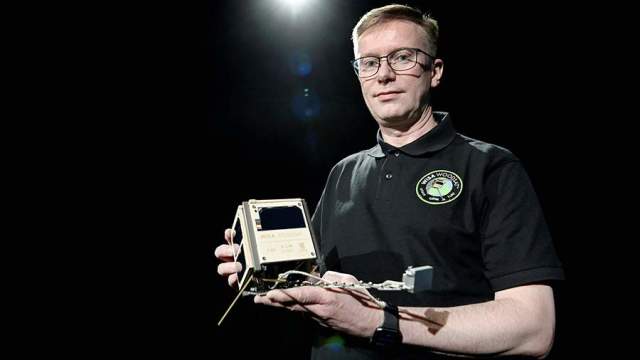Finnish woodworking company UPM announced the postponement of the launch into space of the world's first satellite made of wood WISA Woodsat for the first half of 2022. This was reported on Friday, October 15, on the company's website.
Initially, the launch was planned to be carried out before the end of this year.
The reason for the delay was the rejection of the company's application for the use of amateur radio frequencies for communication with the satellite by the International Amateur Radio Union (IARU). The refusal to issue a license is due to the fact that the main mission of the satellite is not related to the activities of radio amateurs.
The developer of the Arctic Astronautics satellite and the manufacturer of the rocket launch vehicle Rocket Lab are trying to "ensure the launch time as soon as possible," UPM noted.
The WISA Woodsat nanosatellite is designed to collect data on the behavior of plywood under sudden temperature changes, vacuum conditions and increased radiation for two years to assess the use of wood materials in space structures.
The satellite is expected to be launched into space from New Zealand using Rocket Lab's Electron rocket. The movement of WISA Woodsat in space will be monitored by two cameras, one of which is mounted on a retractable handle. The satellite will receive energy from nine small solar panels.
In March 2020, it was reported that the Russian Cygnus nanosatellite could become the first spacecraft to leave Earth orbit using a solar sail. A flight sample of the satellite can be presented in three years, after which a test flight will follow.
According to Alexander Popov, senior lecturer at Bauman Moscow State Technical University, two sails with a one-sided reflective coating will be released from special cylinders on both sides of the satellite due to centrifugal force. Their total length will be about 320 m.

